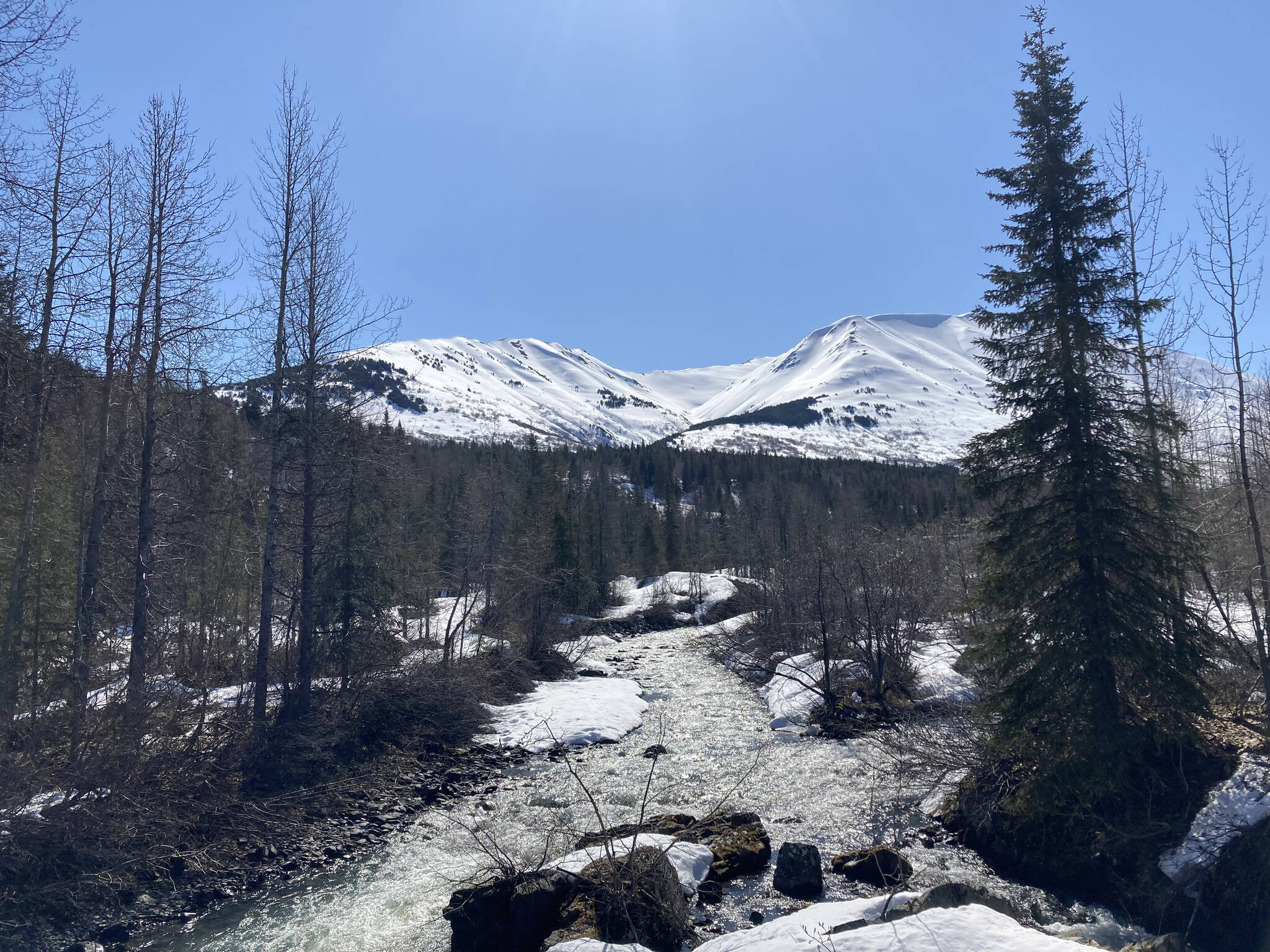One of my big markers of the grand, prolonged shift from winter to summer in Southcentral Alaska is sitting on the bridge over Mills Creek after a ski down Manitoba Mountain in the Summit Lake area.
On May 11 this year, just past 8 a.m., the day started cold. Even while climbing the trail up the mountain with skis on my back, I needed a light synthetic jacket over my base layer and fleece just to stay warm.
The snow reflected the cold temps, staying hard as a rock even after I ditched my synthetic jacket halfway up the climb.
Things gradually began to soften up on the way down and by the time I returned to Mills Creek, spring was in full effect. I sat comfortably in just a base layer, the smell of budding trees and sprouting plants in the air, the rushing sound of melted snow flushing by beneath my feet.
The moment was ripe for reflection. I couldn’t help but think of another big marker of seasonal change.
In the years after I arrived in Alaska in 1997, I quickly began telling myself that summer didn’t start until I shook the hand of Lance Coz.
Coz was pivotal in starting the American Legion Post 20 Twins program in 1975. He served as manager and head coach for the program, qualifying the Twins for state 43 times in 45 years until his death in September 2020 at 73.
I’m a sports editor at the Clarion, so Coz has been a steady summer presence in my life. With his death coming in the hectic time of a pandemic, I’d never had time to sit back and reflect on the man until the steady waters of transition ran beneath my feet this May.
Much has been said about Coz’s skill in maintaining the Twins program and his contributions to baseball, but two things about him stood out to me.
First was his genuine interest in helping those he knew further their lives and passions.
Coz was never a general “How’s it going?” guy. He’d always come up with some nugget in my life, culled from the paper or conversation with a friend, to ask me about. That also held for any longtime acquaintances that would join the conversation while I was in Coz’s presence.
He also was the rare coach who didn’t tell me how players fit into the team. He’d tell me how baseball was going to fit into a player’s life.
This player is a little shy and needed to be more confident, and Coz thought baseball could help with that. This other player is a natural talent who seems to have to work at little, but Coz knew the commitment to a summer of baseball would be a fine lesson about work.
The second thing that stood out was Coz’s willingness to toil behind the scenes for the good of the program, happy to not take credit for all the hours he put in.
I remember covering a game one day long ago, before Alaska Legion Baseball had a media director to take care of many day-to-day details of the league. I had a question about the standings and called Coz about three hours after the game had ended.
He was still at the ballpark, hunting down results over the phone to see just where his team stood.
“Why?” I asked.
“Jeff,” he said, “if I don’t do it, there’s nobody else who will get it done.”
To me, that’s the definition of unsung heroes who make a community what it is. People who toil when nobody is watching to get important things done because there is nobody else to do it.
The loss of such people is daunting. They are impossible to replace.
There was a solid stretch of almost 10 years when a back injury would not let me climb up and ski down a mountain. No way I could sit at Mills Creek in May.
A healthy back does not guarantee that I will observe the spring ritual. The mountain has to gather enough snow for skiing. There has to be a bluebird day that comes at a time when I can get off work. I have to still be living in Southcentral Alaska.
Sitting at Mills Creek, it always seems hard to believe I’ll sit at Mills Creek again next year. And that’s what makes the gratitude so profound for the places and people that mark major transitions in our lives.


